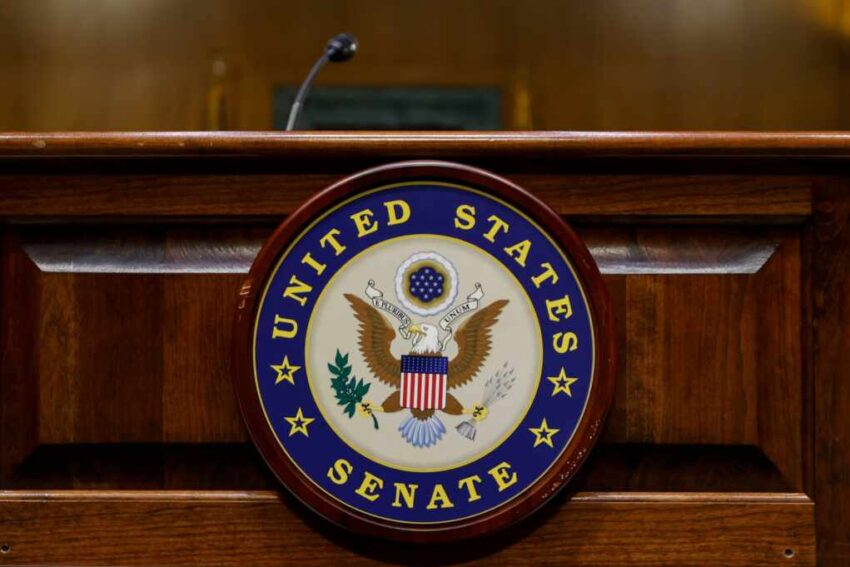A radical New York Times op-ed calls for abolishing the Senate, scrapping the Electoral College, and packing the Supreme Court—igniting a storm of backlash from Americans determined to defend the Constitution against what many see as an unprecedented assault on the nation’s founding principles.
Story Snapshot
- A New York Times op-ed advocated for sweeping constitutional changes, including eliminating the Senate and Electoral College, and expanding the Supreme Court.
- Prominent conservatives and centrists condemned the piece, accusing it of seeking to undermine or overthrow core American institutions.
- The proposals highlight a growing divide, with progressives frustrated by structural limits and conservatives alarmed by efforts to erode checks and balances.
- Despite heated debate, legal experts emphasize that such radical reforms face nearly impossible constitutional hurdles and remain unlikely to succeed.
Progressive Calls for Overhauling the Constitution Spark Outrage
The August 14, 2025, New York Times op-ed, featuring progressive writer Osita Nwanevu and conservative columnist Ross Douthat, brought demands for radical government restructuring into the spotlight. Nwanevu’s core argument, echoed in his new book The Right of the People, is that the left cannot achieve its policy aims under the current system and must seek to abolish foundational institutions—namely the Senate, the Electoral College, and the current Supreme Court structure. The New York Times’ decision to publish these proposals triggered immediate, widespread outrage from conservatives, centrists, and constitutional scholars, who view such suggestions as a direct attack on the republic’s core safeguards.
Conservative backlash was swift and intense, with commentators taking to social media to warn that these proposals, if enacted, would upend the delicate balance of federalism, popular sovereignty, and minority rights. Critics argue that eliminating the Senate would strip smaller states of representation, ending the Electoral College would hand presidential elections solely to population centers, and packing the Court would erode judicial independence. Such measures, they contend, risk concentrating power in the hands of temporary majorities and undermining the constitutional framework that has protected American liberty for over two centuries.
“New York Times hit with brutal backlash over op-ed calling for radical government change so the left can compete” – Blaze Media #SmartNews https://t.co/h4MXXaSLsZ
— BJ Rodrigue (@rodrigue_bj) August 16, 2025
Historical and Legal Barriers to Radical Reform
The foundation of the United States government—ratified in 1788—was deliberately designed to balance majority rule with minority protections. The Senate grants equal representation to states regardless of size; the Electoral College prevents a handful of urban centers from dominating national elections; and lifetime appointments for Supreme Court justices serve as a bulwark against fleeting political trends. Calls to abolish or radically alter these institutions are not new. Over 700 amendments to reform or abolish the Electoral College have failed since the 19th century, and efforts to change Senate structure have met insurmountable constitutional resistance. Even Franklin Roosevelt’s 1937 court-packing attempt collapsed under public and political pushback.
Legal experts consistently underscore the near impossibility of such sweeping changes under current amendment procedures. Constitutional amendments require approval by two-thirds of both the House and Senate, plus ratification by three-quarters of the states—a level of consensus nearly unattainable in today’s polarized climate. While progressives increasingly argue that the system is “undemocratic,” opponents warn that bypassing these hurdles would amount to an unconstitutional power grab and set a dangerous precedent for future majorities to dismantle any institution they dislike.
Media’s Role and the Battle for American Values
The New York Times’ decision to give a platform to these radical ideas has fueled new debate about media responsibility and bias. Many Americans see the op-ed as emblematic of a broader trend in elite institutions to legitimize extremist reforms that would erode the Constitution, diminish states’ rights, and threaten fundamental liberties. Critics accuse the Times of abandoning journalistic neutrality and serving as a megaphone for fringe agendas that run counter to the values of individual liberty, limited government, and constitutional order.
The uproar also highlights a deepening divide over the meaning of democracy itself. While progressive activists claim current institutions prevent the “will of the people” from prevailing, conservatives counter that the Constitution was intentionally designed to slow radical change and prevent tyranny by transient majorities. The result is a high-stakes battle not merely over policy, but over the very structure and identity of American governance.
Sources:
It’s time to abolish the Electoral College
The Electoral College: Past Attempts at Reform
Click this link for the original source of this article.
Author: Editor
This content is courtesy of, and owned and copyrighted by, https://republicanpost.net and its author. This content is made available by use of the public RSS feed offered by the host site and is used for educational purposes only. If you are the author or represent the host site and would like this content removed now and in the future, please contact USSANews.com using the email address in the Contact page found in the website menu.








